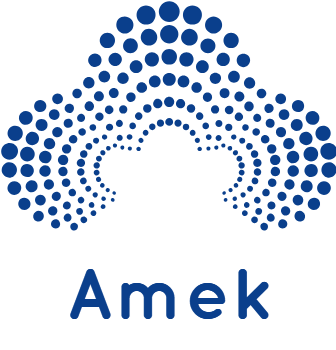Global Product Development
Whatever the size of your project, we will manage it.
Global Product Development
Most Animal Health products are developed with a global perspective, given that the EU and US are the most highly regulated markets. Scientific data produced for obtaining marketing authorizations in these markets can be effectively leveraged to facilitate expansion into other regions, including South America, Asia, Africa, and Australia.
The OECD (Organisation for Economic Co-operation and Development) and VICH (International Cooperation on Harmonisation of Technical Requirements for Registration of Veterinary Medicinal Products) provide well-established guidelines that are recognized by the majority of relevant markets worldwide.
While further harmonization of regulations is ongoing, different regions still present distinct challenges that must be navigated carefully.Implementing a successful global development plan for Animal Health products requires a knowledgeable team orchestrated by an experienced project leader.

Explained in Detail
This team must understand the intricacies of regional regulations, market conditions, and cultural nuances toeffectively manage the regulatory approval process and market entry strategies.
At Amek, we specialise in supporting the development of regulated Animal Health products and feed additives, regardless of the size of your project or the territories you wish to enter. Our expertise ensures that your products meet regulatory requirements and are positioned for success in diverse markets. We provide comprehensive support, from data analysis and documentation to strategic planning and regulatory submissions, ensuring a smooth and efficient path to market.
Trust Amek to be your partner in navigating the complexities of global Animal Health productdevelopment, helping you achieve your goals and expand your reach across the world.

Implementation of the development plan:
1) Initial Assessment and Planning
- Evaluate regulatory requirements for target regions. Develop a strategic development timeline and budget.
2) Data Collection and Analysis - Gather scientific data from EU and US regulatory submissions.
- Identify gaps and additional data requirements for target regions.
- Conduct necessary studies and trials to fill data gaps
.3) Regulatory Strategy Development - Develop a region-specific regulatory strategy for each target market.
- Align development plan with OECD and VICH guidelines
- Prepare risk assessments and mitigation strategies.
4. Product Development and Optimization- Formulate and optimize the product based on regulatory requirements.
- Adapt formulations for regional preferences and conditions if necessary.
5. Regulatory Submission Preparation - Compile comprehensive regulatory dossiers for each target region.
- Prepare and standardize documentation according to regional guidelines.
- Conduct internal reviews to ensure accuracy and compliance.
- Conduct internal reviews to ensure accuracy and compliance.
6. Engagement with Regulatory Authorities
- Establish communication channels with regulatory agencies in target regions.
- Submit regulatory dossiers and respond to queries promptly.
- Participate in regulatory meetings and negotiations as needed.
7. Manufacturing and Quality Assurance- Set up manufacturing processes that comply with regional regulations.
- Implement quality control measures to ensure consistent product quality.
- Conduct regular audits and inspections of manufacturing facilities.
8. Market Entry and Commercialization- Develop a market entry strategy tailored to each region.
9. Continuous Improvement and Adaptation- Evaluate the success of the development and implementation process.
- Identify areas for improvement and update strategies accordingly.
- Stay informed about regulatory changes and adapt plans as needed.
- Develop a market entry strategy tailored to each region.
Regulatory Affairs


In-depth knowledge of the regulatory background in:
- Product Safety and Quality Assurance
- Labeling and Claims Compliance
- Nutrition and Formulation Standards
- Regulatory Submissions and Product Registration
- Import/Export Compliance
Data Management and Analysis
Data Management
We can provide full data management services for any kind of studies. We can offer both, electronic data capture as well as paper-based systems, also accelerated by fax systems.

Any system will include:
- Study specific databases
- Creation of data capture forms
- Option for double data entry
- Generation of queries
- Full audit trail
- Data management plan and report
- Data listing
- Any formats for data transfer

Data Analysis
We have experience with the use of a variety of different EDC systems. However, our preferred system is Studybase®, that was specifically developed for animal health and is fit for use in studies in pets and food producing animals.
- Programming of study specific databases according to protocol requirements
- Individual access via password identification for each person involved
- Allocation to treatment and blinding
- Allocation of the different roles to individual persons
- Allocation of the language to each person
- On-line information system
- On-line plausibilities and queries
- Full audit trail
- On-line reports for tracking for study management, if applicable
- Full back up and validation of the system
- Preparation time <4 weeks from end of protocol to being on-line

Elevate Your Skills
Trainings, Seminars and Workshops
In the dynamic and ever-evolving field of animal health and nutrition, staying informed and roficient is crucial. Our comprehensive series of trainings, seminars, and workshops are designed to equip professionals with the essential knowledge and skills needed to excel. This section outlines a variety of educational opportunities, each tailored to address specific areas of expertise and practical application.
Find out about our Seminars and Workshops on:

- Basic and advanced training in animal nutrition
- Basic and advanced statistical training for your staff
- Quality standards to conduct studies (GCP, GLP)
- Obtaining marketing authorizations for animal health and nutrition products
- Strategies to develop borderline products for animal health or nutrition
By engaging in these trainings, seminars, an workshops, professionals can enhance their expertise, ensure compliance with quality standards, and successfully navigate the regulatory environment. These educational opportunities are designed to support your ongoing professional development and contribute to the advancement of animal health and Nutrition.
